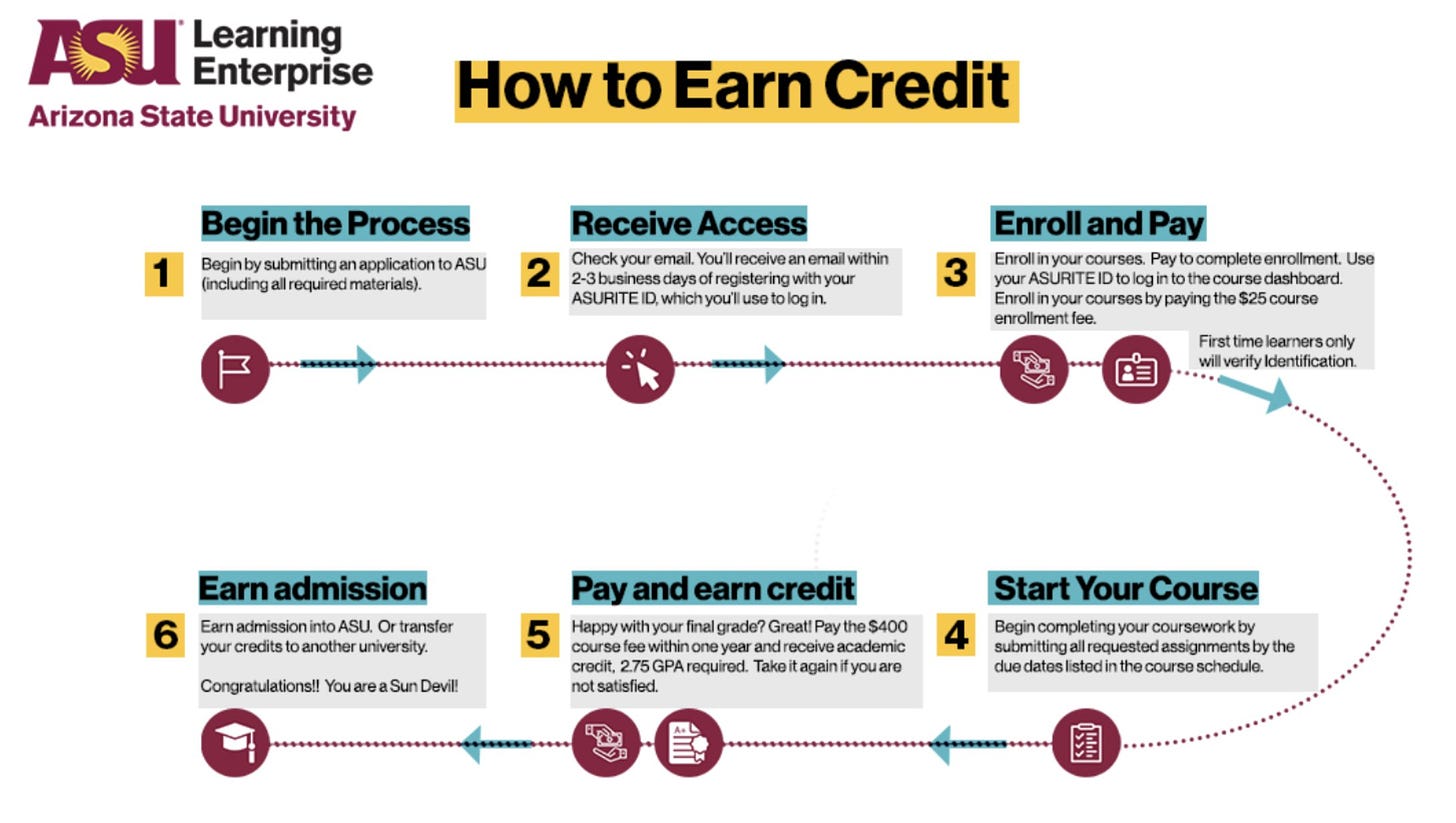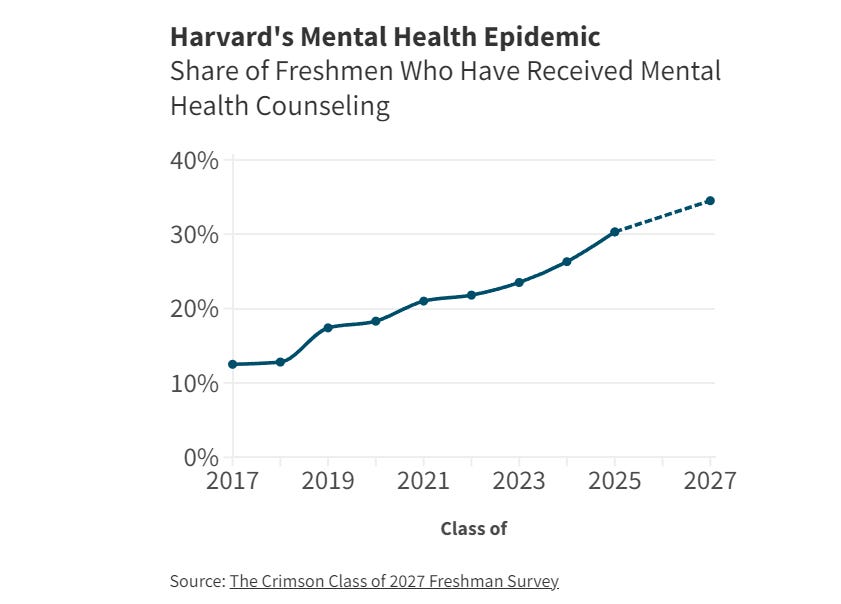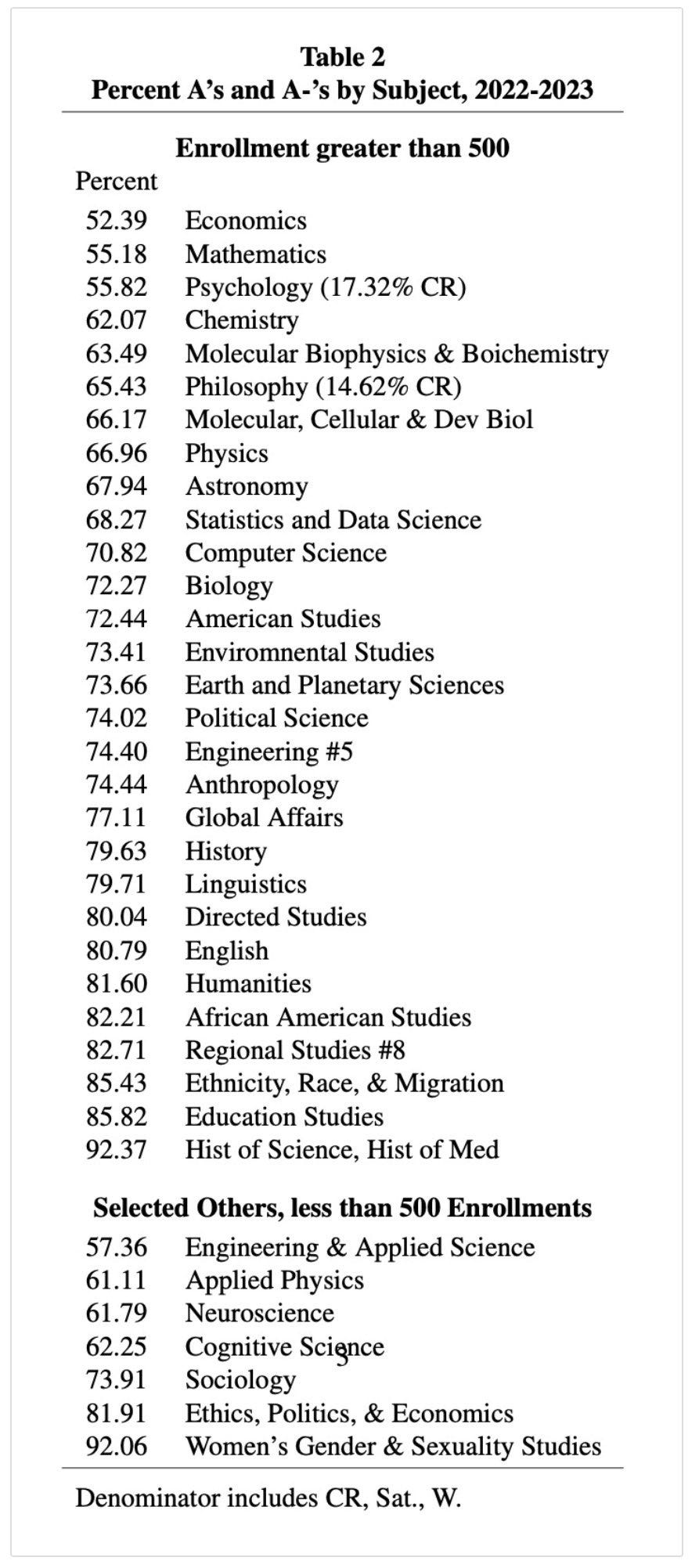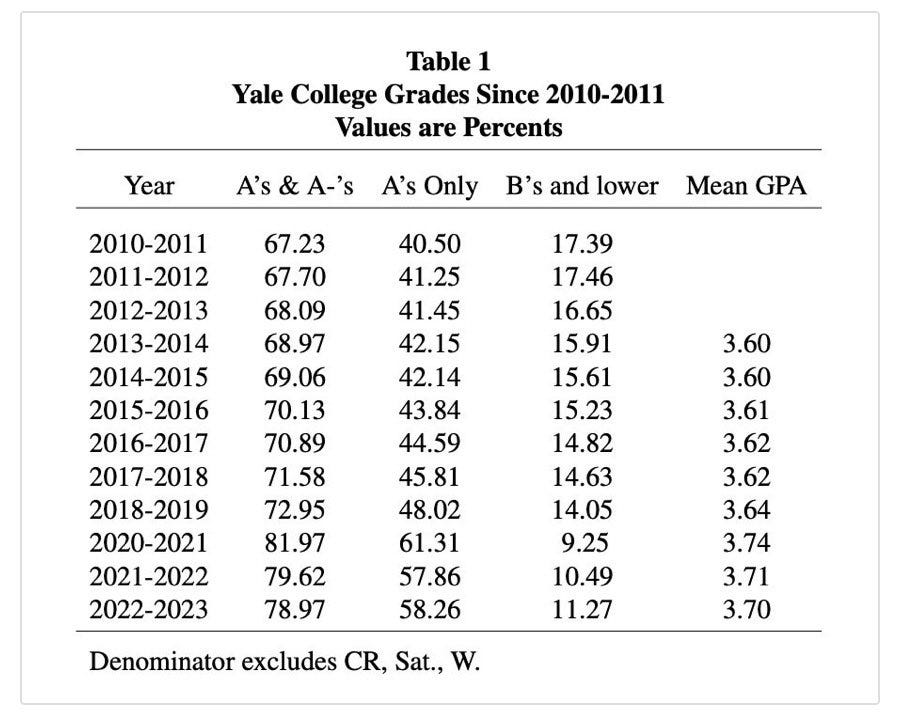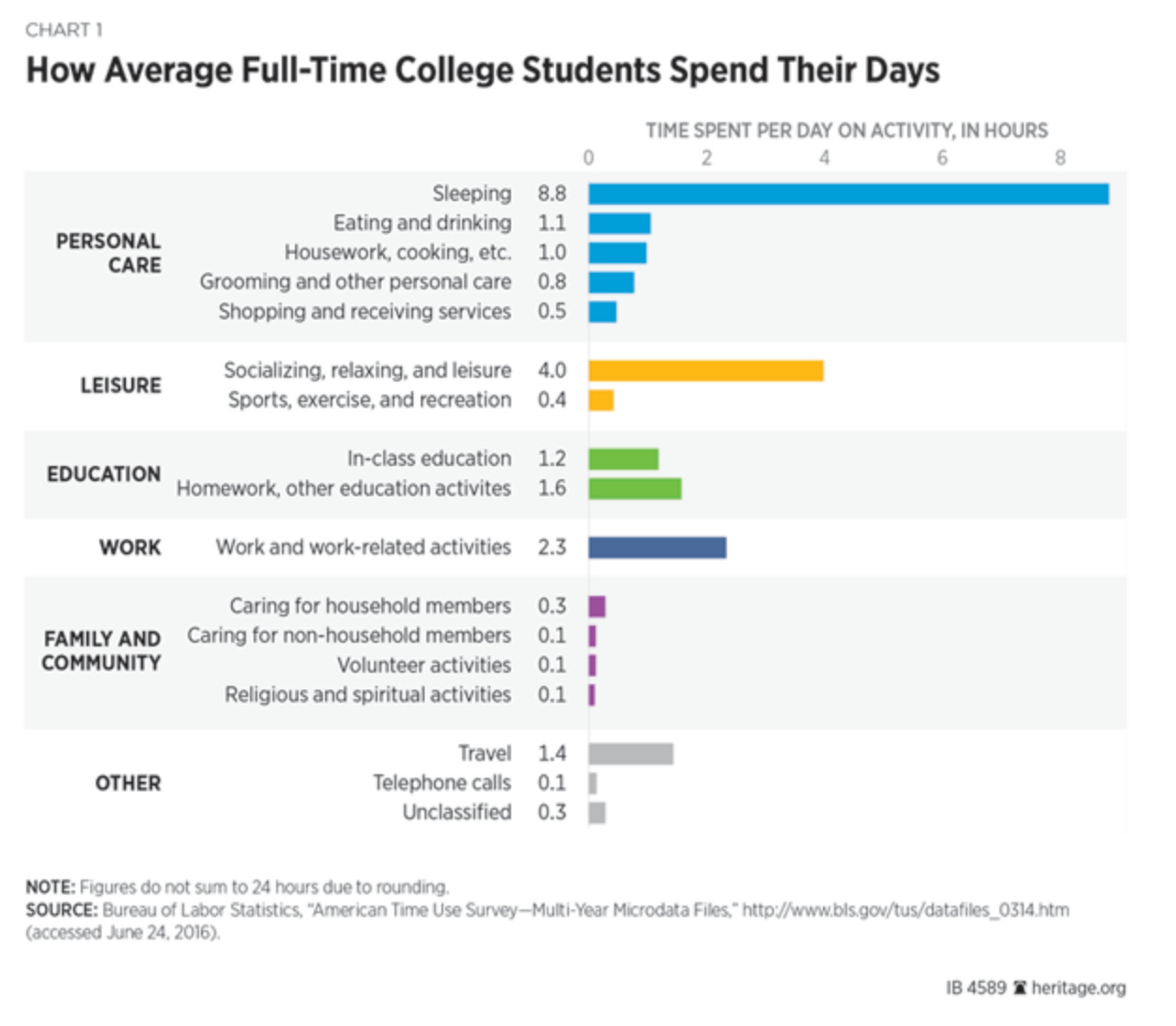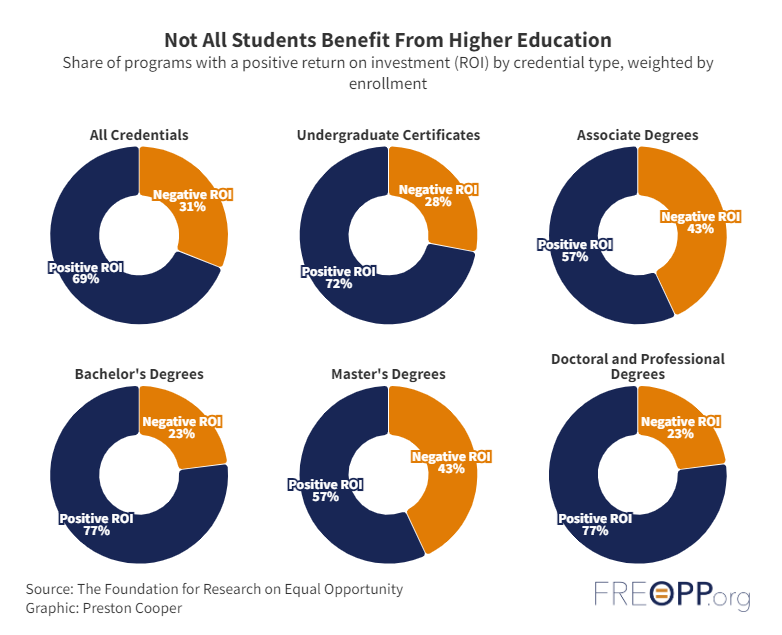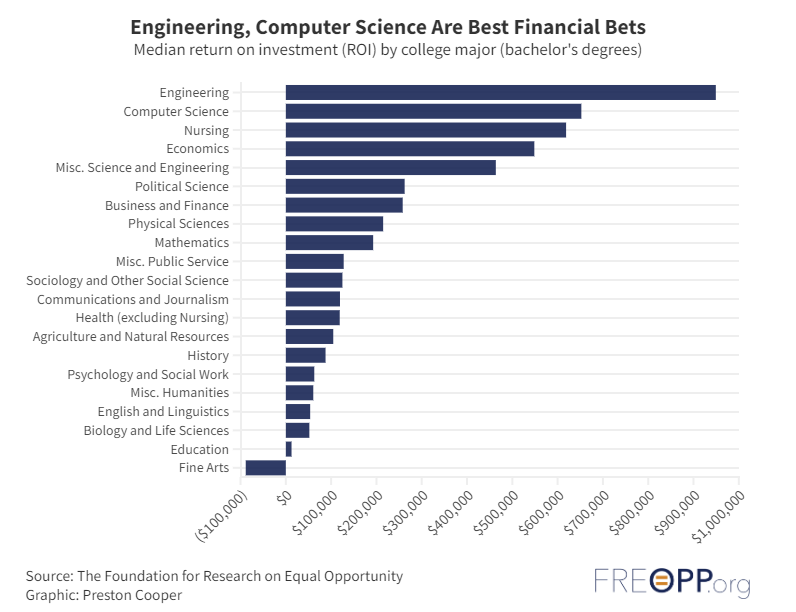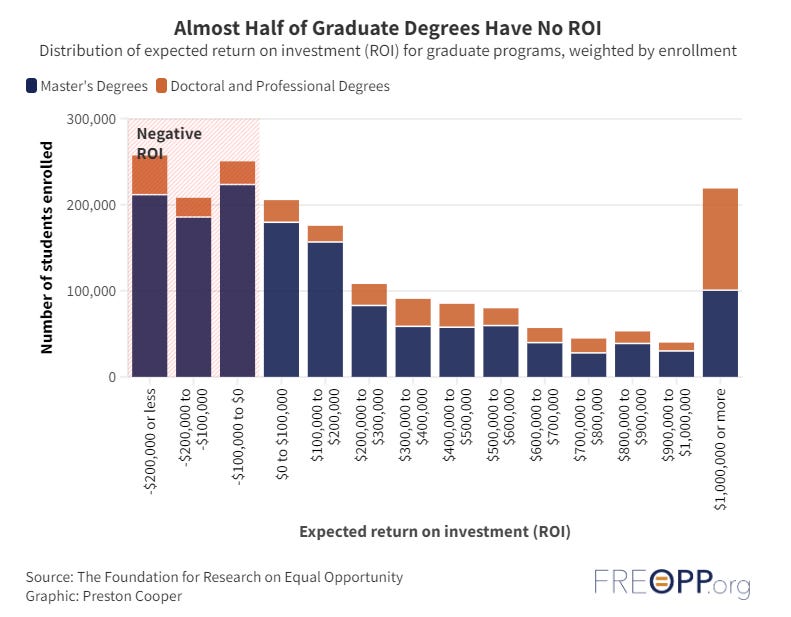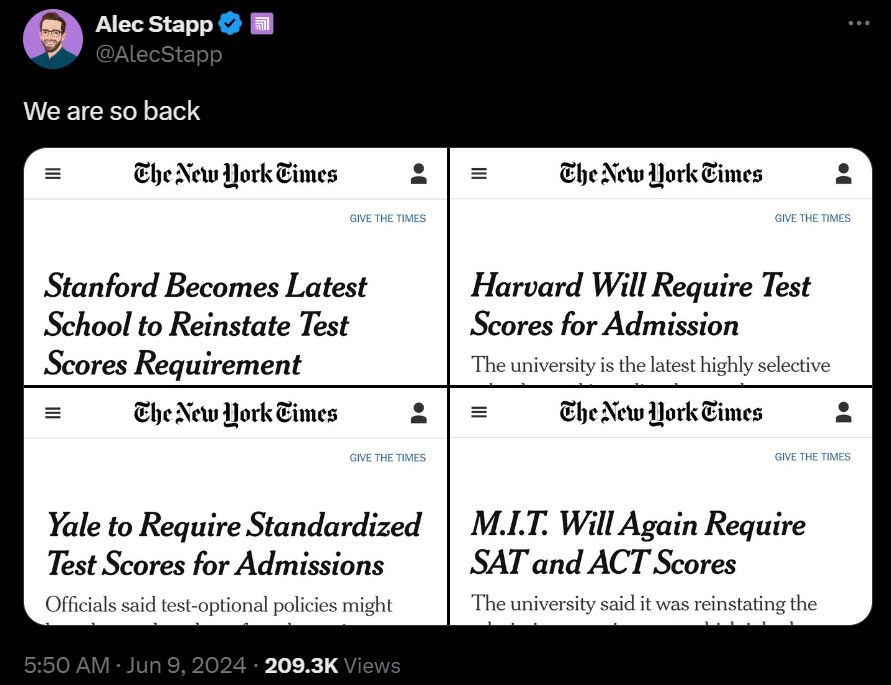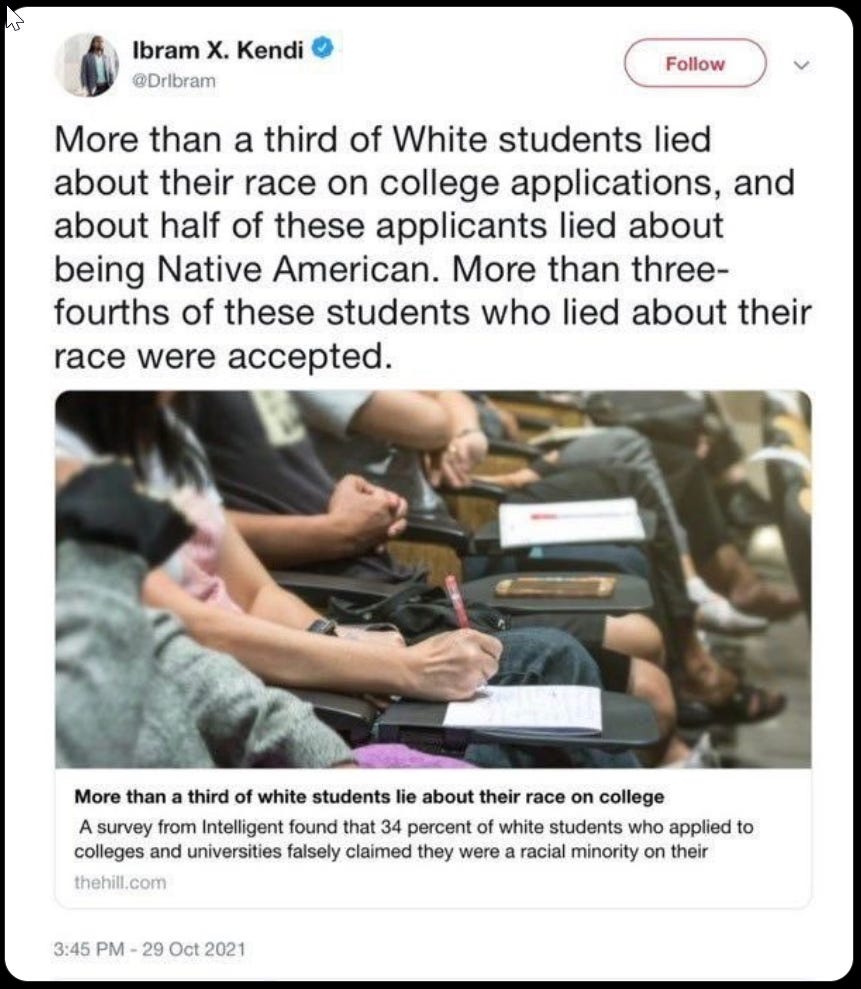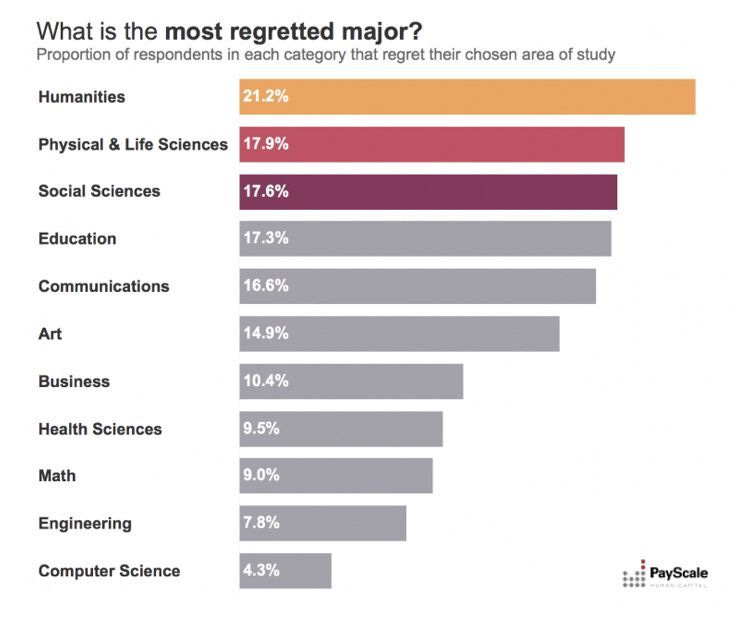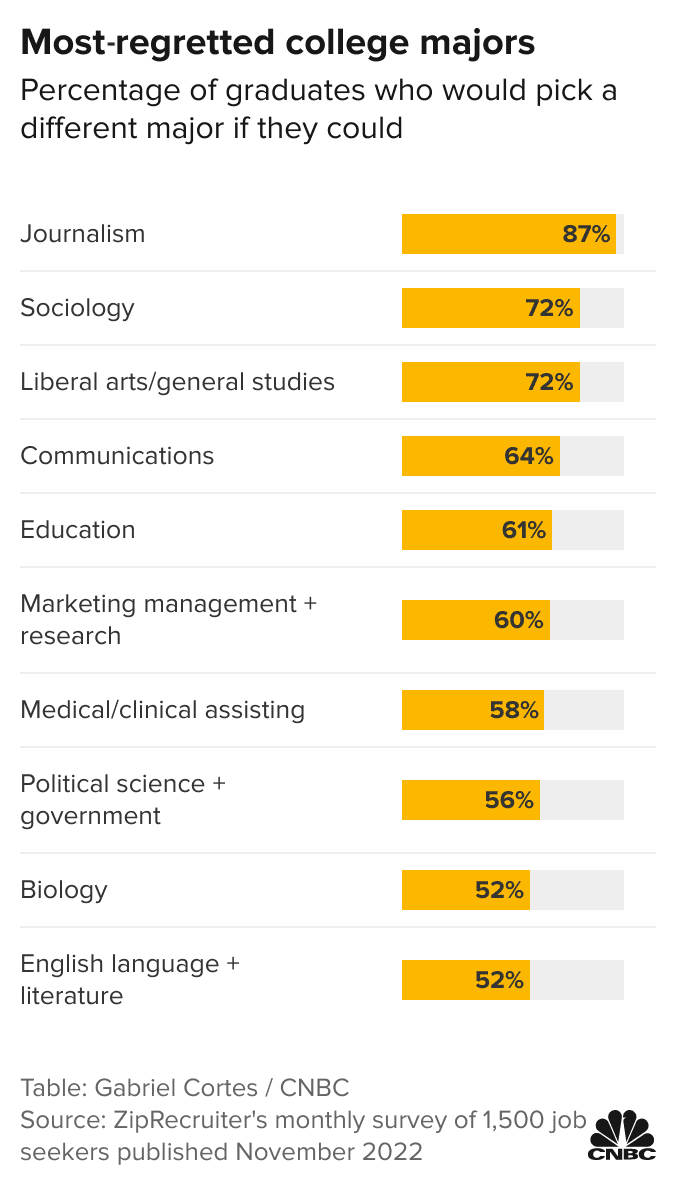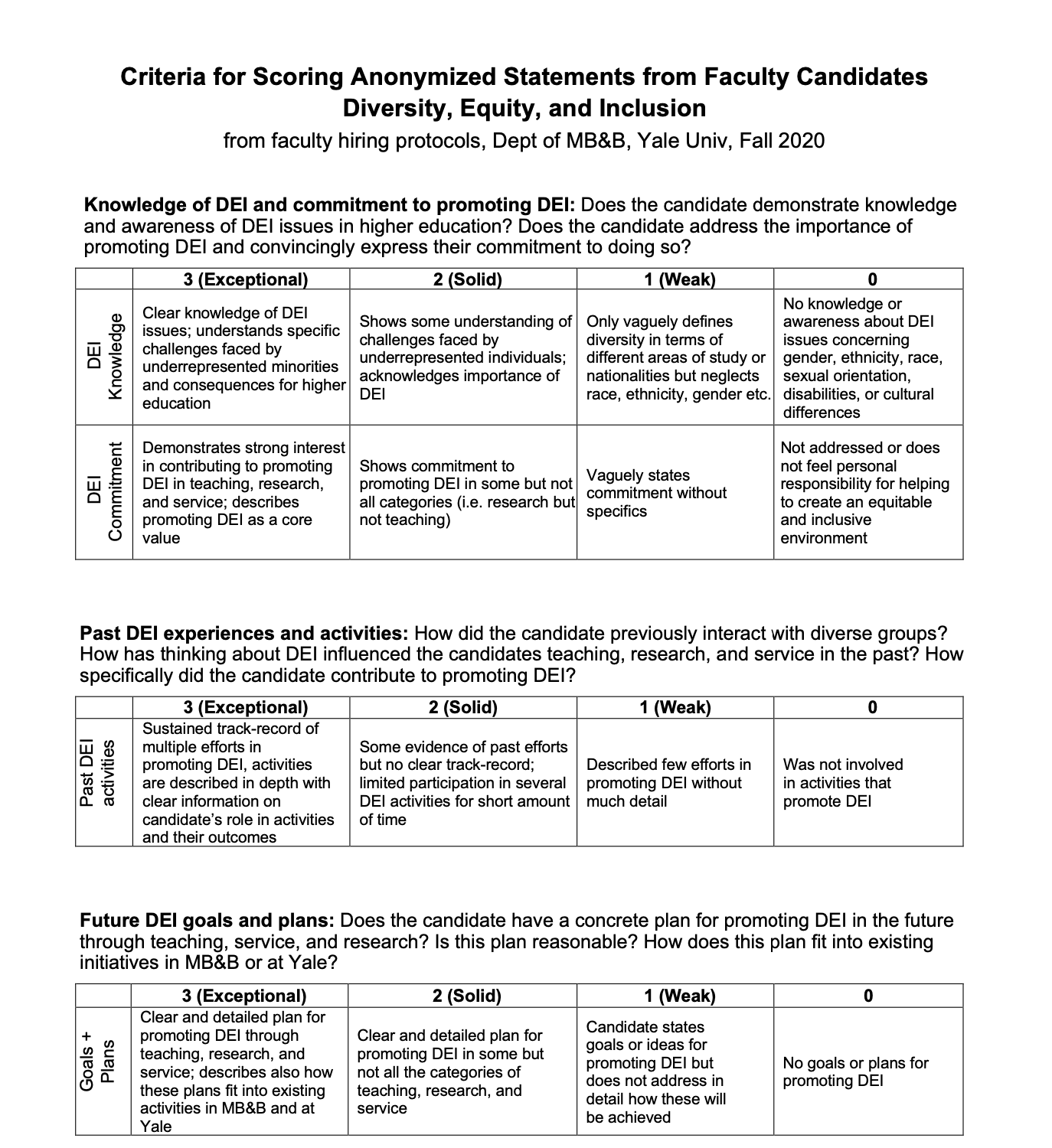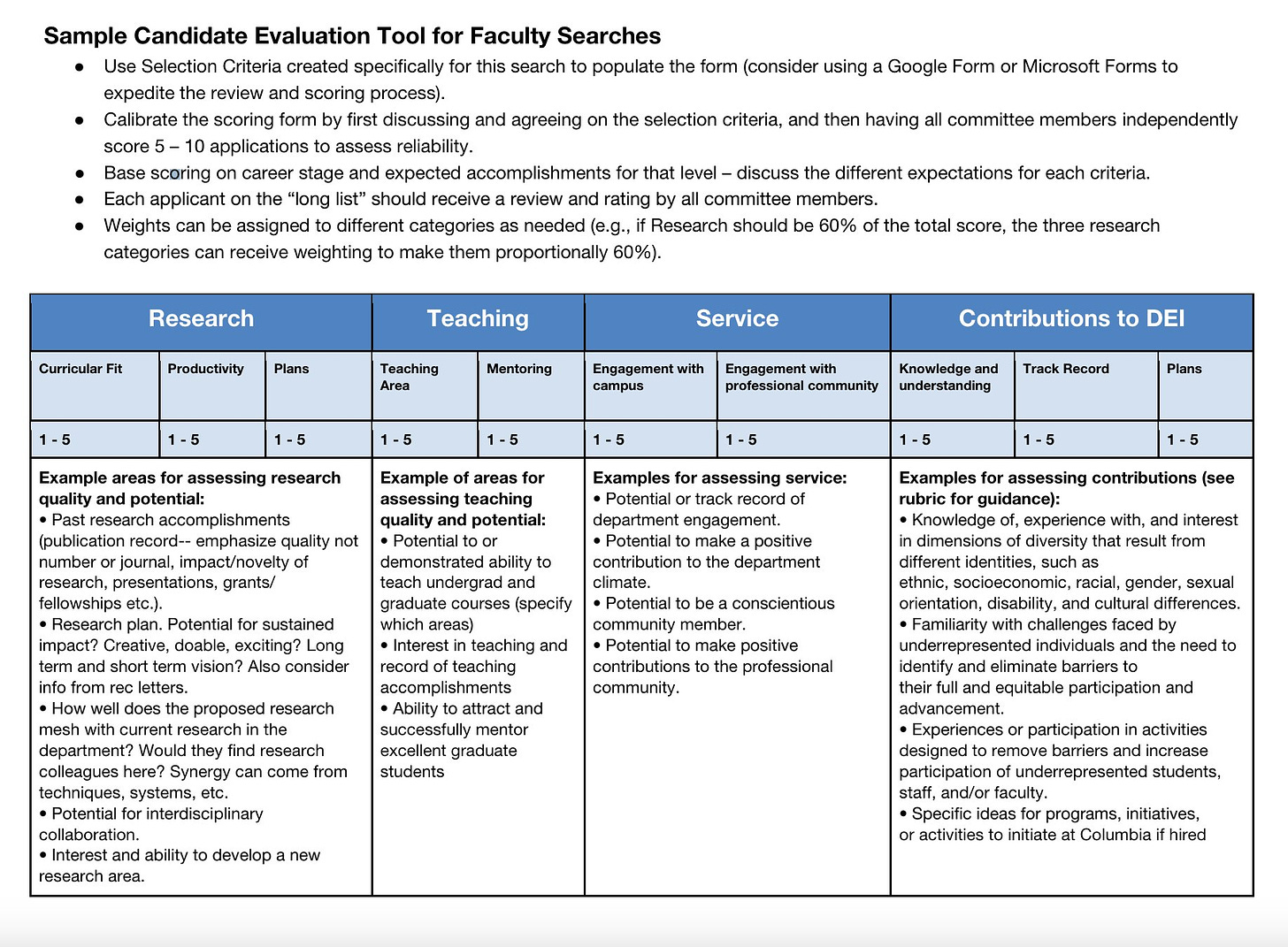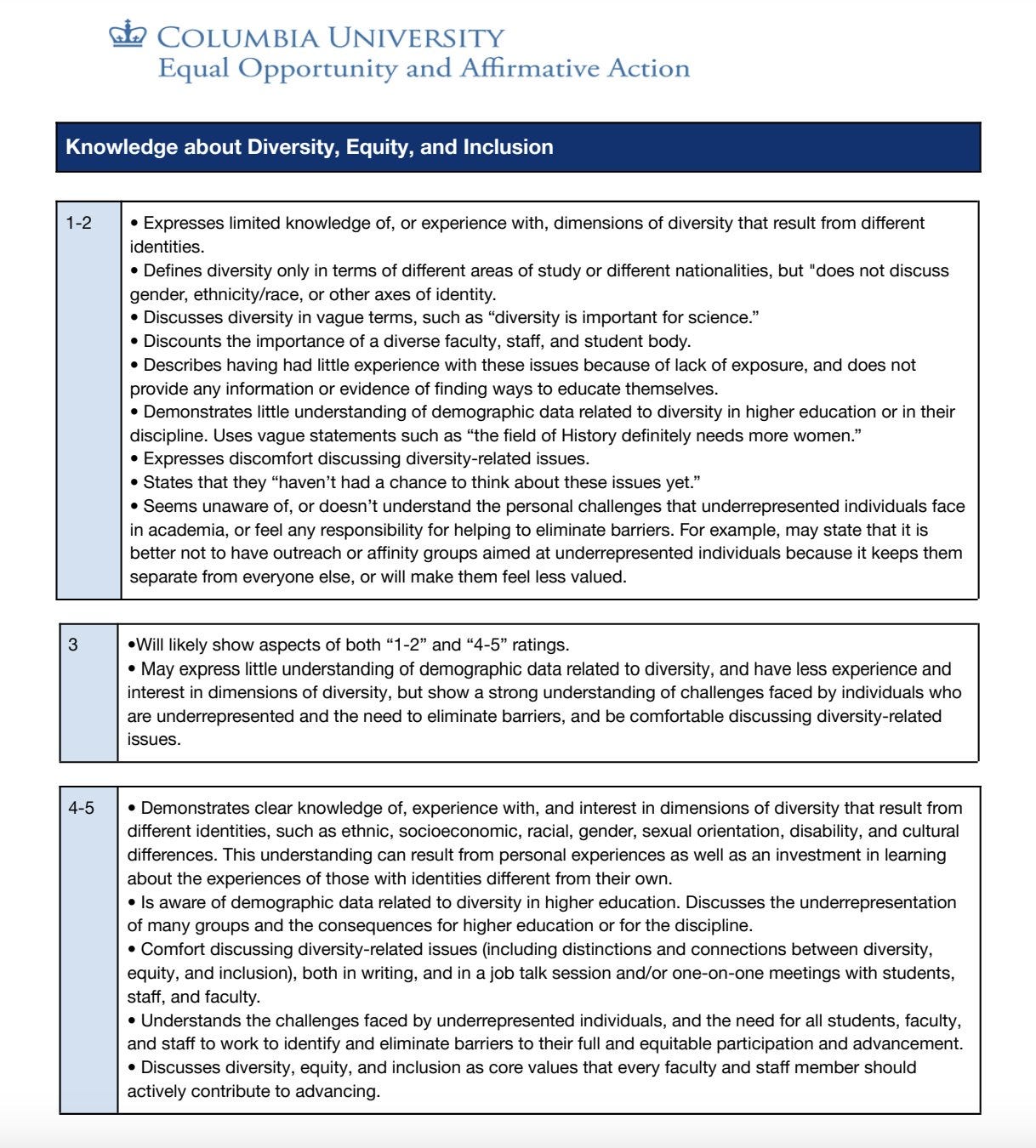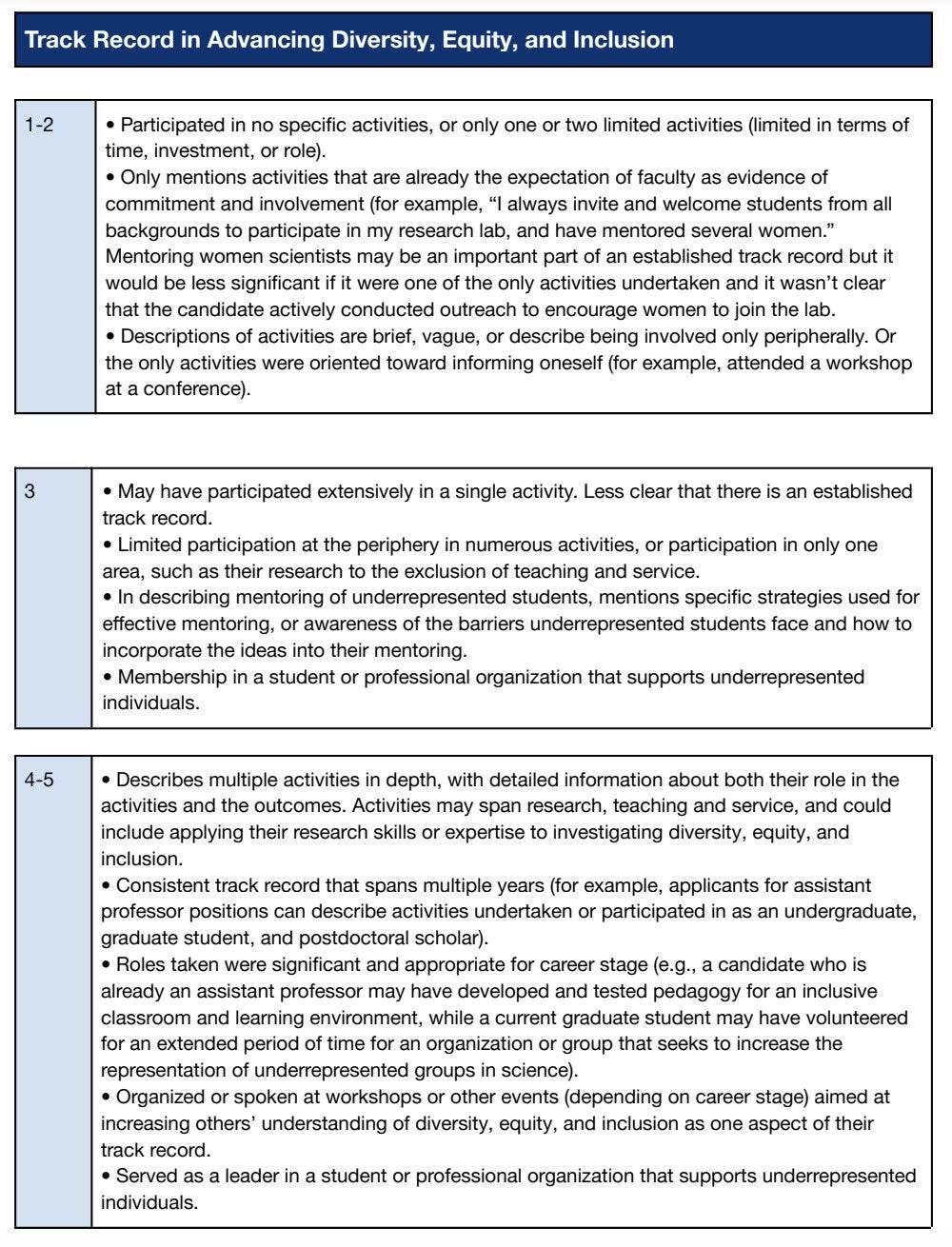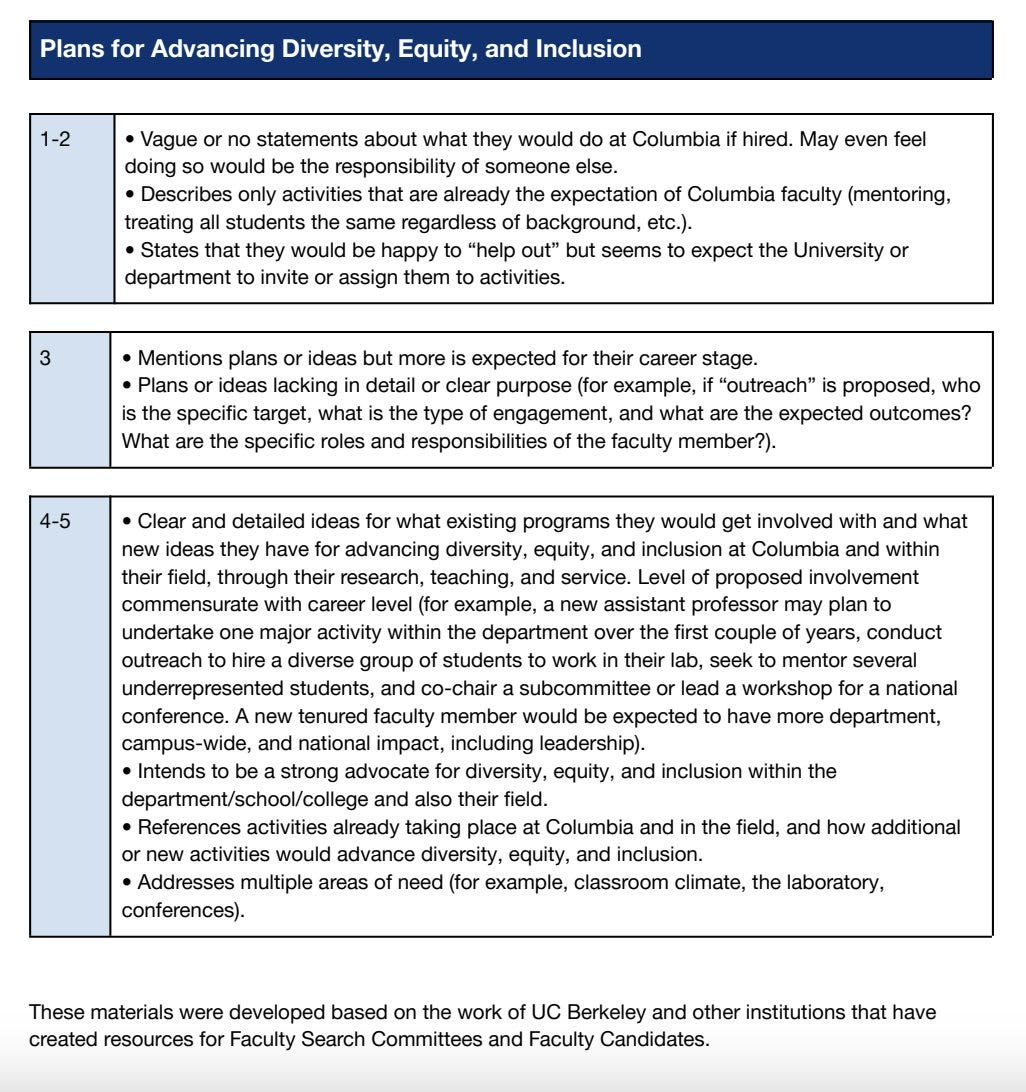Childhood roundup #5 excluded all developments around college. So this time around is all about issues related to college or graduate school, including admissions.
What went wrong with federal student loans? Exactly what you would expect when you don’t check who is a good credit risk. From a performance perspective, the federal government offered loans to often-unqualified students to attend poor-performing, low-value institutions. Those students then did not earn much and were often unable to repay the loans. The students are victims here too, as we told them to do it.
Alas, none of the proposed student loan solutions involve fixing the underlying issue. If you said ‘we are sorry we pushed these loans on students and rewarded programs and institutions that do not deserve it, and we are going to stop giving loans for those programs and institutions and offer help to the suffering former students, ideally passing some of those costs on to the institutions’ then I would understand that. Instead, our programs are moving dollars mostly to relatively rich people who can afford to pay, and by offering forgiveness we are making the underlying problems far worse rather than better. Completely unacceptable even if it were constitutional.
Colorado governor Jared Polis, who really ought to know better, signs bipartisan bill to make first two years of college free for students whose family income is under $90k/year at in-state public schools. Technically this is 65 credits not counting AP/IB, concurrent enrollment, military credit or credit for prior learning, so there is even more incentive to get such credits.
The good news is they do have a full cliff, this falls off as you approach $90k, so they dodged the full version of quit-your-job insanity. The obvious bad news is that this is effectively one hell of a tax increase.
The less obvious bad news is this is setting up a huge disaster. Think about what the student who actually needs this help will do. They will go to a local college for two years for free. If they do well, they’ll get to 65 credits.
Then the state will say ‘oops, time to pay tuition.’ And what happens now? Quite a lot of them will choose to, or be forced to, leave college and get a job.
This is a disaster for everyone. The benefits of college mostly accrue to those who finish. At least roughly 25% of your wage premium is the pure Sheepskin Effect for getting your degree. If you aren’t going to finish and were a marginal student to begin with (hence the not finishing), you are better off not going, even for free.
I do not think we should be in the business of providing universal free college. There are real costs involved, including the negative externalities involved in accelerating credentialism. However, if we do want to make this offer to help people not drown, we need to at least not stop it halfway across the stream.
The real life version of the college where there degree students who pay for a degree but aren’t allowed to come to class versus the non-degree students who get no degree but are educated for free. To be clear, this is totally awesome.
David Weekly: This seems kinda…radical? ASU makes its courses available to anyone for $25/course. After you take the class, if you want the grade you got added to an official transcript with a credit you can use, +$400. These are real college credits. 8 year olds are getting college credits!
Emmett Shear: This is cool to me because you can see the core of university economics right there. Bundling $25 worth of education with $400 of credentialist gatekeeping. I’m not blaming ASU, it’s cool they’re doing this, but that is deeply broken.
Sudowoodo: Totally understand your comment but this is the best possible instance of a college credit system I’ve seen. One course for $400 equals 120 credits of a degree for $16k (plus the $25 per course), or an additional major for just a few thousand dollars.
Emmett Shear: Right, but that just goes to highlight how absurdly overpriced the credentials are vs the actual education.
James Hulce: I did 70+ credits under this program. During the early years of the pandemic ASU reduced the credit conversion fee to $100 and waived the $25 enrollment fee, so I took a wide variety of courses. Overall very happy with the quality and delivery.
Aside from being virtual, this product is vastly better than the normal one. You get to try out courses for $25 and bail if they are no good. If you struggle, or you get bad grades, you can start over again for another $25 or bail. You are never stuck with a bad grade. Then at the end, after you pay for the credits, it is still a deep discount, an entire degree for $16k.
Of course, this is Arizona State University, so the real product (by reputation) is neither education nor credential. Rather it is the cool parties. This program cannot help you with those. But if you are cool enough and show up, they are also close to free.
The big picture is that trust in academia, like many American institutions, is rapidly collapsing, among essentially all groups.
Here is one theory on (one aspect of) what happened.
Derek Thompson: Why is trust in US institutions—esp colleges—collapsing? Here’s a theory. The 21st c has became the age of the unfocused institution—the age of mission inflation, goal ambiguity, and complex orgs losing any clear sense of priority, or identity.
Odalisk Flower: The university is supposed to solve the perennial question of the American Experiment: How do we get the benefits of an intellectual elite without the drawbacks of a hereditary aristocracy?
What has changed recently is common knowledge that this particular solution has failed.
In fact, it has failed so spectacularly that dissidents are now floating suggestions that perhaps a hereditary aristocracy isn’t so bad after all. For most, this is still outside the Overton window, but it’s wild how fast that window is moving.
I have not noticed rising whispers of the potential wisdom of hereditary aristocracy, indeed neoreaction seems to be fully dead. From where I sit, there is broad recognition that the universities and our other institutions have failed, without any particular suggestion about what plausible replacement would be superior beyond building private local alternatives. My expectations is that the replacement will emerge out of the transformations wrought by AI, whether or not it is an improvement.
Harvard students are highly stressed, despite having made it to Harvard, says Harvard Crimson. I would note that getting mental health counseling is often a function of how and when counseling is provided as much as it is about actual mental health – if we applied today’s standards to 2017 I bet the graph starts substantially higher.
Is this despite, or because, of the very high grades?
Article goes into the usual suspects, overscheduling, lack of social time, social media, hyper-competitiveness and perfectionism. Everyone running between ‘pre-professional’ activities trying to stand out. Harvard, the author says, is now a group of students obsessed with their relative status. Sounds like what would happen if you filter for exactly that type of young person, then put them all in the same place to compete, without the ability to differentiate themselves with grades because everyone who wants one has a 4.0.
Not that everyone in the Ivy league actually has a 4.0. Grade inflation is high, but these percentages of A grades from Yale are still a lot less than 100%, and inflation may have at least temporarily peaked:
The patterns here are clear, such that small surprises stand out and seem meaningful. Are we not appreciating what is happening in psychology? Their studies may not be replicating, but the grades are not either. You have to respect that. Whereas physics seems to have gone rather soft.
What does it say about the students who choose various majors and classes, given this wide distribution of grades? One could say that students going into education studies are smarter because they knew to secure better grades. Or one can say they went that way because they can’t hack it, or did not care to. Or one could say that your 4.0 in education studies means nothing (above getting into Yale in the first place) and everyone will know that.
Obviously we need a meaningful range of grades, otherwise students cannot differentiate themselves based on grades, so they both won’t care about doing well and learning, and they will become obsessed with other signals and status markers.
Ben Golub: This is real and is creeping outside Harvard to most elite private schools grades should be made to matter again, and instructor evaluation practices should be adjusted to give them a free hand to give bad grades!
Orin Kerr: Very interesting essay by Harvard undergrad @aden_barton, arguing that Harvard undergrads don’t spend a lot of time on classes and studying—which he attributes mostly to grade inflation. If grades are compressed around “A”, there isn’t much to study for.
Aden Batron (essay in Harvard Crimson): In the final class, each student was asked to cite their favorite readings, and the professor was surprised that so many chose readings from the first few units. That wasn’t because the students happened to be most interested in those classes’ material; rather, that was the brief period of the course when everyone actually did some of the readings.
Despite having barely engaged with the course material, we all received A’s. I don’t mean to blame the professors for our poor work ethic, but we certainly would have read more had our grades been at risk. At the time, we bemoaned our own lack of effort. By that point in the semester, though, many other commitments had started requiring more of us, so prioritizing curiosity for its own sake became difficult.
And therein lies the second reinforcing effect of grade inflation, which not only fails to punish substandard schoolwork but actively incentivizes it, as students often rely on extracurriculars to get ahead. Amanda Claybaugh, dean of undergraduate education, made this point in a recent New York Times interview, saying that “Students feel the need to distinguish themselves outside the classroom because they are essentially indistinguishable inside the classroom.”
How bad is it? Oh my lord.
Zalman Rothschild: I was a teaching fellow for two classes at Harvard College when I was at HLS. One was taught by an amazing visitor from Dartmouth. He enforced a strict curve. The other was taught by a Harvard prof. He informed us TFs that an A is the default grade. A- would require justification.
Orin Kerr: Jesus H.
Maggie Wittlin: No no, that’s the law school system.
Matt Yglesias says students in college should study more, and we should hold them to actual standards.
Right now, they are doing remarkably little real work.
When you add in-class education, homework, other educational activities and outside work (which I would say largely counts as educational and is often necessary for support), we get 5.1 hours for ‘full time’ college students, or 35.7 hours a week.
Matthew Yglesias: Philip Babcock and Mindy Marks have shown that over the decades, students have been spending less and less time on studying — “full-time students allocated 40 hours per week toward class and studying in 1961, whereas by 2003 they were investing about 27 hours per week.”
I agree with Yglesias that to fix this we would need a dramatic reversal of grading practices. You need willingness to actually punish students who are not getting it done, with actual life consequences on more than the margin, or it won’t work.
Matt Yglesias: The nascent Summers-era crackdown was turning A-s into B+s and B+s into Bs. That generated some whining from students, but ultimately, to restore old-school academic values, schools will need to hand out Cs and Ds that put students at the risk of real negative consequences, like loss of scholarships, getting kicked out of school, or heading into the job market looking like a real fuckup.
And then you get the problem that Hunham confronted: Is this what students and their parents want?
It is indeed not what most parents and students want. Which means we know what product they are mostly buying, and the universities are mostly selling.
And like so many other things these days, there is remarkably little product differentiation. Almost no one is willing to say, this is something different, and we will get those who want that different product, and employers or prospective citizens or what not who want that product can reward that. It is odd to me that this is rare. If all the selective universities are rejecting most applications, so what if 90% of students and parents recoil in horror, so long as the other 10% are excited? Or 98% and 2%?
The killing of Harvard’s Math 55. John Arnold contrasts an ‘06 Crimson article on how hard the course is, with a ‘23 Crimson article showing how it is no longer special. One can reasonably argue that if 70 start, 20 finish and only 10 understand, maybe that is bad actually, but I disagree. I think that math is a place for exactly that, because failure is an option. You want to provide the real thing, and it is fine if the majority can’t hack it and drop out. If we can’t fail here, where can we fail?
Claim that in the wake of their donors pulling out complaining about antisemitism, the price for Ivy league admission via donation has effectively been slashed on the order of 90%, from $20 million to $2 million. That seems clearly below the market clearing or profit maximizing price? The optics of doing large volume on this also seem pretty terrible. Kids whose parents can pay $20 million are someone you want as a peer so you can network, but at $2 million that advantage mostly fades. At some point the damage to the student body adds up. So I’m skeptical.
To what extent are we seeing a shift lowering the value of Ivy league degrees?
Nate Silver: This speaks to the story I wrote earlier this week. Yes, the value of your Ivy League degree is going to be affected if people start to associate your school with political activism instead of academic rigor.
Andrew Ross Sorkin (NYT): Businesses may be unlikely to rush into formally patrolling universities’ policies by adopting either of these theoretical maneuvers, but they might amp up the pressure in some other way through their informal preferences. As Darren Woods, the chief executive of Exxon Mobil, said of campus protests in an interview with CNBC this week: “If that action or those protests reflect the values of the campuses where they’re doing it, we wouldn’t be interested in recruiting students from those campuses.”
John Arnold: Anecdotal, but I’ve had several conversations in recent years with people who hire undergrads for highly competitive jobs (tech, finance, consulting etc) that are moving away from the Ivies and towards flagship state universities, citing better cultural and professional fit.
Now confirmed with data. Forbes surveyed managers with hiring authority. When asked whether more/less likely to hire vs 5 years ago:
Ivy League: 7% more likely; 33% say less likely
Public univs: 42% more likely; 5% less likely
Selective privates: 37% more likely; 5% less likely
I would classify the selective privates at least half with the Ivies, not mostly with the public universities, if I was doing this style of recruitment.
Preston Cooper provides an entry in the genre where you measure the financial ROI of various college degrees given different universities and majors. 31% of degrees were negative ROI, once you factor in time costs and risk of not finishing.
Every time we run this test we get a graph of majors that looks like this:
That then interacts with different colleges, which differ in many ways including completion rates. And of course, if you switch programs based on this information, you do not suddenly get the completion rate (or net life impacts) of the degree you switch to, even if the original study was done fully correctly.
The return on master’s degrees was not so great.
Preston Cooper: What about grad school? It’s complicated.
Med school & law school have huge payoffs.
But nearly half of master’s degree programs leave students in the red.
How much government funding goes to programs with no return? We can answer that thanks to new data.
Programs in the ROI database received $418bn in funding from 2018 to 2022.
Of that, $122bn (29%) flowed to negative-ROI programs.
It would be highly reasonable to tie government funding to program ROI, if we had a good measurement of that, but that is not how our government works.
Here is the data dashboard. In which I learned that my degree and major had negative ROI by this metric, whereas if I had switched majors from Mathematics to Economics like I considered, I would have had a vastly easier job all around and also picked up almost three million dollars (!) in expected value.
I don’t buy the full result there, but if this reflects reality even somewhat, letting me make this mistake and stick with Mathematics, without even a warning, was deeply, deeply irresponsible.
Ideally we would get a more detailed breakdown, but yes.
Derek Thompson: Before the pandemic, new england colleges had more than 2x more applicants than southwestern colleges.
At current trajectories, southwestern college applicants will surpass new england in two years.
Nate Silver: This is pretty interesting in light of yesterday’s post.
There’s an inverse correlation between the left-wingness of the colleges in each region and growth in applications.
A lot of students just want to go to college to drink beer, hook up, go to football games, and emerge with a degree that will give them gainful employment. They far, far outnumber the political activist types. And they’re voting with their feet, it looks like.
Most students care primarily about things other than political activism. The problem for them is that college is a package deal. (Almost?) all the selective colleges have lots of political activism and force you to care deeply about things that are neither fun nor going to be useful to your future or part of getting a traditional education. And at least faking those things is deeply tied to your admission to those schools and to your social life and experience in class and administrative rules set once you arrive.
Colleges are reversing course, and admitting that yes standardized test scores are required for admissions.
It was completely insane to drop this requirement. Doing so only hurt the exact people they claimed to be trying to help. The good news is, while we have a long way to go, we seem to be past peak insanity in such matters.
Nate Silver: The critique that universities are run like for-profit corporations that are mostly concerned about the bottom line is correct. Also, that’s what might save them.
A new way has been found to discriminate.
Steve Miller: UCSD announced a new policy April 9 to exclude students whose parent is college educated and makes over $45,000 from enrolling in computer science or other selective majors, unless spots are available after first generation or low income students enroll.
Nearly 40% of all UC San Diego students are first generation students.
So if you are not a first generation student or low income, it will likely become virtually impossible to enroll in computer science or other selective majors.
This policy applies to students seeking to enroll in selective majors after their initial admission to the university, as the policy linked in the original post specifies.
Separate preferences for first generation students apply in admission.
This likely effectively means that if you are not a first-generation college student (and an in-state student) then you will not be able to transfer to a selective major, no matter your other GPA. Those making these decisions have made their motivations and intentions clear, so go in with your eyes open, both reading the fine print and realizing that they could add more fine print later.
But also, it seems odd that students want to major in computer science, and we are saying no rather than expanding the program? Isn’t that exactly what we want?
Perhaps our children are learning after all. They can solve for the equilibrium.
That was back in 2021. Presumably this number has only gone up since then.
The Hill:
A survey found that 34 percent of white students who applied to colleges falsely claimed they were a racial minority on their application.
Most students, 48 percent, claimed to be Native American on their application.
Seventy-seven percent of white applicants who lied about their race on their application were accepted to those colleges.
…
According to Intelligent.com Managing Editor Kristen Scatton, the prevalence of applicants who claim Native American ancestry is possibly due to the popular narrative that for many Americans, a small percentage of their DNA comes from a Native American tribe.
It is not clear this is helping the applicants much, whether or not they were caught. Liars got accepted at a 77% clip, but the typical acceptance rate overall is already about 65%, and it is not clear this is ‘accepted at any given college’ rather than at all, and there are various other factors in both directions.
What’s totally crazy is doing the math on this.
-
About 50% of college applications are from white students.
-
White students report they lied 34% of the time.
-
Of those students, 48% pretended to be Native American.
-
That means that 5.8% of applications are falsely claiming to be Native American.
But the rate of real Native American applications is only about 1%. So that means, even if the other half of applications never lie: If you mark Native American, there is an 85% change you are lying. Meanwhile, several percent of those who lied checked the box for AAPI, which presumably only hurts your chances even if they believe you.
So yes, I doubt checking that box helps you much on its own.
Phil Magness: If you want to genuinely disrupt higher education for the better, impose severe limits on the number of mandatory GenEd classes that students must take. These courses are the lifeblood of hyper-politicized woke departments that otherwise wouldn’t attract many students.
Most students would be better served by starting their majors earlier and taking more classes in skills and subjects related to their degrees. Most GenEds, as currently taught, are complete wastes of time at best, and political indoctrination at worst.
Those same GenEds serve another function though: they create jobs for faculty in otherwise unpopular disciplines. And the depts that have the heaviest presence on the GenEd curriculum (e.g. English) also tend to be the largest departments on campus, despite drawing few majors.
It’s unethical to require economically precarious 18-21 year olds to pay for classes they don’t need just to keep a horde of English, Sociology, and Foreign Language professors employed.
I had a highly extensive set of general required courses I had to take, something like 40 credits. You could make a reasonable case for the 16 that were reading the ‘Great Works’ of literature and philosophy. There wasn’t a problem with wokeness back then (the closest thing was when I sort of tried to cancel The Symposium for all the praising of child rape, and got told to STFU about it and come to class or else), but still the rest was pointless, a waste of time taking up almost a full year of coursework.
Phil Magness notes that students could instead start their majors. That implies that when you arrive on campus, you should know what major is right for you.
That is another issue with all the required classes. There is little room for exploration, most of those slots are already spoken for. If I had wanted to switch majors to something other than Mathematics, I had almost no opportunities to sample alternatives in time to do this. Realistically I could have probably made it to Physics or Economics, and that’s about it.
Which majors are most often regretted? Humanities.
Jacob Shell: What they don’t tell you in high school or college advisor offices is some of these are “winner takes all” majors and others aren’t. The comp sci normie is making a nice living right now, but the physics major is a sunlight-deprived lab tech for 30 years in a row.
I would have thought the physics majors were mostly not now doing physics? It still makes sense that regret rates are high. Math majors are mostly not doing math all day anymore, but they seem fine with it. As a math major myself, I am an exception, and I do regret it, although perhaps the signaling value made it worthwhile after all.
Here is a different survey that asks the same question. Will you regret that major? This time the answer is, probably.
Regret is an imprecise measure, but these are not small differences.
Thread of what Basil Halperin learned in graduate school. Increasing returns to effort for specialization in terms of skills, whether that translates to world improvement or pay is another question. Nothing here made me think anyone should go to grad school.
Then again, do you go there for the learning?
Here is Bryan Caplan on when to get which Econ PhD. The algorithm is essentially:
-
Only get an economics PhD at all if you want a job that needs it, such as an economics professor.
-
If you can get into a top-25 Econ program and endure the pain, go there instead.
-
If you can’t do either or both of those, you can go with GMU.
-
When to get a Masters? When you drop out before finishing your PhD.
-
In any case, if you want this, apply to at least 15 schools, process is super random.
It is no surprise given his other opinions that Bryan Caplan’s answer to that question is a very sharp no. In Caplan’s model the purpose of graduate school is to get a job that won’t hire you without one. That is it.
I think he’s right.
Nate Silver offers related Good Advice.
Nate Silver: Real, non-trollish life advice:
If you’re a smart young person and you really want to go to graduate school, then by all means go. But if you’re on the fence, probably don’t. That’s not where the action is. And it’s not where the action is going to be for the foreseeable future.
The specific exception is if you go to graduate school with the intention of being a sleeper agent to improve academic (or government/broader nonprofit research) culture. That is potentially quite valuable for society (though it won’t necessarily be lucrative for you personally).
I do not believe you when you say you are going to be a Sleeper Agent. I expect you to either get worn down and be a normal academic, or to run away screaming in horror at some point, because man does that all sound miserable. It is a noble thing to do, of course, to be the change you want to see and fight for it, if you can.
It emphasizes that my basic advice here would be that going to graduate school is something you should only do with a very specific purpose, and generally only if you can attend an elite institution. Do not go because you have nothing better to do. Have a specific career path in mind, that either does not face or justifies the long odds usually against such paths. Know what you want to learn, and want to prove.
Or, ideally, if you possibly can, go do something else instead.
What is academia for, then? Presumably something else.
Aella: It’s insane how much academia is not about figuring stuff out. The current state of academia is not what it would look like if we went “hey I wanna figure out the truth behind a thing.”
Fred Scharmen (QTing): “Hey I wanna figure out the truth behind a thing” is like what an elementary schooler thinks that grad students are supposed to be doing. I hope this person grows up eventually.
Hazard: Good example of the general vibes and tactics used to haze people into fucked up social orders and institutions without ever having to defend them.
You just mock people who don’t know the scam is a scam.
I’ve written about this before.
It’s a load bearing tactic for maintaining normalization of deviance.
It is worse than that.
I get mocking someone for actually being confused here. One should not do even that. But yeah, if someone with experience straight up said ‘I am shocked, shocked to fund that things other than searching for truth are going on in here, how can that be, I am so confused’ then then mockers gonna mock.
This is not someone saying ‘I do not understand why someone is slurring their words in this cafe’ in a world where the cafes were called cafes but were actually bars. This is ‘it really is insane the amount of hard drinking going on in all the cafes, did you notice how rare it is for anyone to get a coffee anymore, they are actually bars’ and someone mocking you, saying ‘coffee is what an elementary schooler thinks people drink at cafes.’ And then everyone went back to pretending cafes only served coffee.
As Dilan Esper and Andrew Rettek note here, the right thing on free speech is to defend everyone’s right to speak. It is in the context of very much not doing this in other contexts, treating a wide variety of far less harmful speech as ‘violence,’ that this sudden claim of realizing of one’s principles in this one case rung hollow. No one is pretending this is a new set of general pro-speech principles to be universally applied.
As Jill Filipovic and Jonathan Haidt each note, it would be great if universities used the recent protest moment to realize they their systematic error, and broadly once again embrace free speech the way they used to do.
This is the letter the ACLU sent out in 1978 after they defended the right of actual Nazis to march in order to defend free speech for all of us.
You have to let them talk. This is America, man. Or at least, it used to be.
Alas, I am not holding my breath for such an outcome.
If it does happen, Charles Murray has kindly offered to allow the presidents to prove their devotion to free speech by letting him host a talk.
We are not letting them talk. FIRE found that 3% of current college students have been punished for speech, which translates to 5% over four years, which is enough for a hell of a chilling effect especially given how risk averse college students are now.
Jill Filipovic urges us all to rise to the standard of the old ACLU, no matter what others have done, and stand firm for free speech even asymmetrically. Do not call, she says, for more restrictions in the name of even-handedness. That is a tough sell. It is also not obvious which path leads to more free speech. Si vis pacem, para bellum?
Larry Summers points out that Harvard’s multiple Antisemitism Taskforces, which are accomplishing nothing, are the wrong approach, an alternative to both moral leadership and standing up strongly for free speech. Instead, Harvard continues to allow official support antisemitic positions without allowing the voicing of pro-Israel positions.
Paul Graham links to Richard Florida, a professor at the University of Toronto, who says people in academia now feel more space to speak their minds after recent events.
Here are some examples of other cases where free speech could have been stood up for, and universities chose a rather different path.
Harvard declares it is now mission first. It will no longer make ‘official statements about public matters that do not directly affect the university’s core function.’ I put up a prediction market on whether they stick to it. Good luck, Harvard!
What is Harvard’s mission? Harvard.
Nate Silver: Notable exceptions to free speech:
Incitement
Defamation
Criticizing Harvard
Lawrence Bobo (Dean of Social Sciences, Harvard): A faculty member’s right to free speech does not amount to a blank check to engage in behaviors that plainly incite external actors – be it the media, alumni, donors, federal agencies, or the government to intervene in Harvard’s affairs.
Lawrence Summers: It takes something extraordinary to bring me into agreement with Israel demonizing faculty like Walter Johnson. That is what Harvard Dean Lawrence Bobo has done with his call for punishing faculty who publicly challenge university decisions.
I cannot understand why his boss Dean Hopi Hoekstra has not condemned the idea. Nor can I understand how someone who believes faculty who believes in punishing dissent can be allowed to set faculty salaries, decide on promotions or be involved in faculty discipline.
How can it be according to Harvard leaders that it is fine to call for an end to Israel as a Jewish state but not to criticize the University administration?
Students from the University of Waterloo computer science programs have been enjoying oversized success, despite it being a relatively young university founded in 1957. Henry Dashwood looks at what makes Waterloo different. They have a five year program that does not break for the summer, the culture focuses on working on projects rather than partying or sports, they have a startup accelerator on campus, and despite having a lot of CS students they are very selective (claimed 4% acceptance rate).
So it is exactly the story one would expect based on what startup culture says. Focus on building things, cut out everything else.
I am curious if that model will long survive moves like this, although I appreciate that they have a distinct department for pure mathematics:
Chris Brunet: The Department of Pure Mathematics at @UWaterloo is hiring a math professor.
”Eligible candidates for this search must self-identify as women, transgender, gender-fluid, nonbinary and Two-Spirit people.”
Waterloo’s Faculty of Engineering is also hiring an engineering professor.
”Eligible candidates are required to identify as a woman or gender minority, which is defined to include individuals who self-identify as women, transgender, gender-fluid, non-binary, or twospirited.”
Also, 2 professors of computer science.
Joshua Rauh nots that his training on DEI included an example of where someone saying ‘DEI has gone too far’ is the first sign of prejudice and on the job discrimination.
Alex Tabarrok in response: DEI has gone too far.
Indiana signs a bill introducing ‘intellectual diversity’ as a standard for tenure decisions. Tyler Cowen suggests it will backfire, that observance will be addressed via technical box-checking, and that universities could retaliate by not hiring any actual conservatives (even more than they already do) at all for fear they would be forced to grant such people tenure later. It is extremely difficult to get a bunch of academics who want it to be one way, with only left-wing (or often only far-left-wing) viewpoints welcome in academia, to agree to have it be the other way via a law. Tyler does not lay out what he would do instead. I can think of ways to do it, but they involve big guns.
Wisconsin’s universities initially voted down a compromise to get rid of some DEI positions in exchange for funding for raises and new buildings, but they came around.
Washington Post Editorial Board comes out against DEI statements in hiring.
WaPo Editorial Board: The last thing academia — or the country — needs is another incentive for people to be insincere or dishonest. The very purpose of the university is to encourage a free exchange of ideas, seek the truth wherever it may lead, and to elevate intellectual curiosity and openness among both faculty and students. Whatever their original intent, the use of DEI statements has too often resulted in self-censorship and ideological policing.
Here is what they are opposing.
Paul Graham: People in the sciences thought they could ignore the fools over in the humanities and just focus on their research. But now the fools’ ideology is colonizing the sciences.
John Sailer: NEW: Yale University’s department of molecular biophysics and biochemistry requires all job applicants to submit a DEI statement.
Here’s the evaluation rubric, which shows the exhaustive DEI criteria for assessing any scientist hoping to work in the Yale department.
Here is the full post from The Free Press.
When making hires at Yale’s department of molecular biophysics and biochemistry, faculty are told to place “DEI at the center of every decision,” according to a document tucked away on its website.
To what extent does that mean an applicant’s DEI score impacts their chance of being hired? If you have a 12 versus an 8 versus a 0, what happens? One cannot be sure. It is compatible with ‘anyone under 11 need not apply’ and also with ‘no one actually cares.’
How easy is a high score? My guess is you can get to about a 7 (3/2/1/1) with a willingness to bullshit and use ChatGPT. Higher than that likely requires either lying or being willing to spend (and commit to spending) substantial amounts of time.
What about Columbia? How much do they care? What do they want?
John Sailer: NEW: For hiring new professors, Columbia University recommends valuing “contributions to DEI” on par with “research.”
The sample evaluation tool also weighs DEI more highly than teaching.
That’s an especially wild default given how Columbia defines “contributions to DEI”
Columbia provides an in-depth rubric for assessing DEI credentials. Which, of course, is pretty important if DEI might carry the same weight as research. Take a look. The rubric gives a low score to candidates who are skeptical of racially-segregated “affinity groups.”
You can feel the attitude coming off these rubrics.
This looks like a substantially tougher test to handle if you mainly care about your subject or are trying to muddle through without a huge time sink or ethical compromise. They mean business.
Given how numerical scores usually work, you do not have much margin for error. Getting a 15 here, if you are willing to do what it takes and spend the time, is easy, and probably so is getting a 9-10 in ‘service’ and that is probably highly linked. I doubt they have that high a bar to get to 8+ on teaching, and a 10 might be pretty easy there too. That does not leave much room to make up points, which has to be done with research. And a third of that is ‘curricular fit’ so those who are gaming the system are going to get full credit there too, while plans are pretty easy to fake.
Your entire actual ‘research track record’ is only worth five points. So yeah, if you are not heavy DEI for real, good luck. You’re not going to make it here.
Harvard’s Faculty of Arts and Sciences eliminated the requirement for DEI statements in hiring (source). Instead they are asked to submit a ‘service statement,’ which can include DEI if you want that. As an applicant, you now must ask: Do you think the requirement went away, or that they are testing you to see if you realize that it didn’t?
One must ask, what exactly did Sally Kornbluth believe before?
John Sailer: BREAKING: A university spokesperson has officially confirmed to me that MIT will no longer use diversity statements in faculty hiring—making it the first elite private institution to backtrack on the controversial policy.
As recently as late 2023, MIT required prospective nuclear scientists to submit “a statement regarding their views on diversity, inclusion, and belonging.” No longer. In a statement provided to me by MIT, Sally Kornbluth said these statements “impinge on freedom of expression, and they don’t work.”
Was she unable to get rid of the statements until now?
Did she think they both worked and that they didn’t impinge on freedom of expression? I can see one thinking that perhaps they work. I can’t see how one can claim they don’t impinge on freedom of expression. You either care about that, or you don’t. So, revealed preferences on priorities, then?
NYU opening a new campus in… Tulsa? Seems like an excellent source of diversity.
